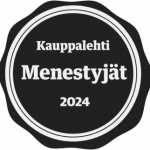Digitalization has evolved from a buzzword to a core element of all organizations’ daily operations. Universities of applied sciences will no longer simply adopt tools, but rather will exploit them for better teaching and administration.
This article describes how Jyväskylä University of Applied Sciences (JAMK), in collaboration with Workseed Ltd, took a significant leap towards digital reform in work training and on-the-job-learning (OJL).
On work training in universities of applied sciences
In Finnish universities of applied sciences, work training and on-the-job-learning (OJL) constitute a major component of formal studies. They offer students an opportunity to learn practical skills and apply theoretical knowledge they have previously accumulated. Through internships, students will:
- gain important skills in their domain of speciality
- develop their professional soft skills
- gain valuable work experience
This benefits not only the student, but also the training organization that gains exposure as a potential employer.
Internship periods vary from 5 to 20 months, depending on the industry. Internships can be temporary, split into smaller work contracts, or completed in more than one workplace. Students can look for internships on their own or using internship portals provided by the academic institution.
Background to the reform at JAMK
Jyväskylä University of Applied Sciences (JAMK in short) recognized the need to reform their work training process in 2021. The reform was based on the following fundamental areas of development:
- The need to reform processing and archiving internship contracts
The university of applied sciences spend considerable time and effort administering contracts between the institution, workplaces, and students. Contracts would be printed on paper, signed by hand, delivered to the workplace, and then scanned manually for archiving. Teachers spent a significant proportion of their time with these manual processes, often being forced to spend less time with their students.
- Prevalence of human error in processing contracts
There was a relatively high risk of misplacing or losing contracts due to the manual archiving process. Administration was worried that in some cases it would not be possible to locate legally necessary documents at the right time.
- Inconsistent quality of support to students and technical limitations to tutoring
The tutoring and support provided by teachers to students and training supervisors was perceived to be inconsistent and insufficient. A teacher would coordinate dozens of students at the same time, usually using a mix of email, internship reports, and remote meetings. Scheduling meetings and receiving reports was perceived as cumbersome and increased teachers’ workload.
Required solution: An automatic, fully digital tool to approve and archive contracts to eliminate manual work.
JAMK decided to reform the process in order to increase efficiency of administrative work and to create flexible ways to work.
The reform process
JAMK and Workseed Ltd initiated a collaborative project in autumn 2021 to design a fully digital project for administering work training. The Workseed platform was deemed a suitable tool as it is designed specifically to support on-the-job-learning. Among other perks, the platform allows training supervisors direct access to legal documents and training assignments.
A pilot phase of the project lasted for six months. During this period, JAMK perceived the following positive impacts of administrative work:
- Increased flexibility: The platform was seen to adapt well to the special needs of different departments. For instance within the context of health and social studies, the most common practice is to use framework contracts that do not require separate contracts for individual students. Other study areas may require individual internship contracts to be approved by multiple parties (school, student, workplace). In these cases, JAMK was able to streamline the process to take place entirely through the Workseed platform.
- Streamlined communication. Signing and archiving contracts takes place faster due to automatic notifications.
- Easy archive management. JAMK now archives legally required documents and contracts automatically. No separate archive or database is necessary. The platform automatically conserves all documents during studies and five years after graduation.
- Increased quality of tutoring. Workseed gives teachers the necessary tools to tutor and support their students better and more regularly. The platform keeps documents, assignments, and feedback tools in the same place. Teachers can follow up their students easily, give feedback, identify need for support, and message flexibly.
- Ease of identifying problems. Extensive visual dashboards and reporting tools allow JAMK teachers to identify situations where students are struggling or falling behind schedule faster than before. Interventions and individual support are easy to offer.
These experiences clearly demonstrate the benefits of digital administration and the opportunities to streamline on-the-job-learning.
Next steps in data-driven decision-making at JAMK
A pillar in JAMK development strategy is to increase regional impact. Workseed learning platform provides an excellent tool to measure regional impact and efficacy of collaboration with private sector actors. Workseed accumulates data not only to assess students and pedagogical materials, but also on how relationships with companies are being forged.
JAMK can easily identify which companies and municipalities belong to their network and assess how different study areas are represented. The university of applied sciences can exploit this data to assess their impact by area and industries, and make more impactful strategic decisions.
Systematic accumulation of data on internship processes allows JAMK also to develop the quality of study programs. The data allows measuring the quality of workplaces and providing institutional support and training to the right partners.
The fact is that private sector partnerships are a crucial factor for all institutions of higher education. Every company willing to offer work training placements is invaluable in the long term.
Conclusions
The highly successful collaboration between Jyväskylä University of Applied Sciences and Workseed ltd demonstrates the efficiency gains a digital process can provide for administering internships. Digitalization not only streamlines information management and eliminates human error, but also allows teachers to spend more time supporting their students.
In case you work with students at a university of applied sciences or a vocational school and want to take your work to the next step, you have come to the right place. Get in touch with our experts and take a step towards a more efficient process for managing on-the-job-learning.
Digitalisering är inte längre ett modeord, utan en central del av undervisning och arbetsliv. Framtidens yrkeshögskolor implementerar inte nya teknologier som ett mål i sig, utan utnyttjar digitala teknologier för att förbättra både undervisningen och administrationen.
I denna artikeln demonstrera vi hur Jyväskylä Yrkeshögskolan (JAMK) i samarbete med Workseed Ab genomförde en reform i sin process för lärande i arbete och tog en viktig steg mot digitala framtiden.
Allmänt om lärande i arbete
Lärande i arbete (LIA) är en betydande del av studier i yrkeshögskolan. De ger
praktisk erfarenhet och gör det möjligt för studerande att tillämpa sina teoretiska kunskaper. I LIA har studerandena möjlighet att:
- Skaffa arbetserfarenhet inom sitt eget område
- Utvecklar sina professionella kunskaper
- Får praktiska arbetslivserfarenhet
Detta gynnar inte bara studerandena. Samtidigt, företaget som ger studerandena arbete gör sig känt som arbetsgivare och har tillgång till större pool av potentiella anställda.
En LIA-period kan vara mellan 5 och 20 månader, beroende på studieområdet. Ofta kan LIA-perioden kompletteras deltid, eller splittras till flera kortare perioder eller delas mellan flera arbetsgivare. Studerande kan söka LIA-platsen på egen hand eller genom yrkeshögskolans jobbsajt.
Bakgrunden till reformen i JAMK Yrkeshögskolan
Jyväskylä Yrkeshögskola JAMK identifierade behovet för att reformera sina processer för lärande i arbete redan i 2021. Behovet motiverades med följande problem:
- Behovet att administrera och arkivera LIA-avtal digitalt
Lärarna slösade bort för mycket tid i att administrera fysiska kopior av LIA-avtal. Det var nödvändigt att printa och skriva under avtalet, skicka fysiska kopian till praktikplatsen, skanna avtalet efteråt och arkivera det. Allt det här kräver mycket manuellt arbete och tid som kunde användas för viktigare arbete.
- Den mänskliga faktorn i informationshantering
När datainmatningen görs manuellt, händer det misstag. Avtal kan tappas bort eller man glömmer att skanna och arkivera avtal. Man kan aldrig vara helt säker på att allt har arkiverats som det ska.
- Ojämn kvalitet i handledning och praktiska begränsningar i verktyg
Man upplevde att handledarna kunde inte erbjuda konstant handledning och att kommunikation mellan läraren och flera tiotals studerande i LIA var jobbigt genom e-post, praktikrapporter och distansmöte. Att handleda studerande på arbetsplatser ökade tiden lärarna var tvungna att använda för administrativt arbete.
Önskade lösningen: Högskolan ville implementera ett system för att automatisera administrativa uppgifter och göra processen för LIA effektivare.
Reformen i JAMK syftade sig till att lösa dessa problem och skapa effektivare och flexibla sätt att arbeta.
Case JAMK Yrkeshögskolan
Under höstterminen 2021 inledde JAMK en samarbetsprojekt med Workseed Ab för att automatisera processen för LIA. Workseed digitala lärplattformen är specifikt utvecklad för att monitorera och administrera lärande på arbetsplatser. Plattformen ger arbetsplatshandledarna lätt tillgång till praktikavtal och studieuppgifter.
Efter en sex månaders pilotprojekt JAMK kunde uppskatta följande positiva verkan:
- Flexibilitet. Plattformen gick lätt att adapteras till olika studieområdens behov. Vid studieområdena var praktikavtal måste godkännas av alla parter (yrkeshögskolan, studerandet och arbetsplatshandledaren), används plattformen för att redigera och godkänna avtal direkt. Fysiska, printade avtal kan elimineras helt och hållet.
- Effektivare kommunikation. Plattformen skickar automatiska meddelanden och påminnelser till alla parter. Avtalet kan skrivas under snabbare.
- Automatisk arkivering. Alla lagstadgade avtal och dokument arkiveras automatiskt digitalt på plattformen. Det finns inget behov att upprätthålla andra databaser eller arkiv. Plattformen bevarar alla dokument under studietiden och fem åt efter att studerande har utexaminerats.
- Handledningens bättre och mer konstant kvalitet. Workseed-plattformen gör att lärarna i JAMK kan monitorera och stödja sina studerande bättre under LIA-perioden. Plattformen hjälper lärarna inte bara med dokumentation och uppgifter. Den gör det även lättare att monitorera studerandes framsteg, ge feedback, och kommunicera lättare.
- Problemfall är lättare och snabbare att identifiera. Lärarna i JAMK kan märka problem på arbetsplatser snabbare och kan ingripa vid problemfall tidigare.
Dessa erfarenheter har demonstrerat digitaliseringens fördelar i praktiken och gjort att processen för arbetspraktik har blivit mycket effektivare.
Nästa steg i databaserad ledning
JAMK har definierat större regional påverkan som ett strategiskt mål. En digital process för LIA utgör ett utmärkt verktyg för att mäta objektivt yrkeshögskolans påverkan på regional nivå och förhållanden med aktörer på den privata sektorn.
En plattform som Workseed ackumulerar data över arbetspraktik i olika organisationer, i vilka områden och kommuner skolan har nätverk, och i vilka industrier är skolan aktiv. Med dessa data kan skolan redogöra för sin påverkan och ta strategiska beslut.
Systematisk datainsamling gynnar också individuella studieområden och lärare. Data kan användas för att mäta och utveckla praktikplatsers kvalitet. Genom att analysera och förstå i hurdana organisationer studerande arbetar kan skolan identifiera behov för åtgärder och erbjuda stöd.
Samarbete mellan yrkeshögskolan och privata företag är allt viktigare. Varje organisation som erbjuder praktikplatser för studerande är en ovärderlig resurs för skolan. Därför lönar det sig att utveckla dessa förhållandena.
Sammanfattning
Samarbetet mellan Jyväskylä Yrkeshögskolan och Workseed Ab demonstrerar fördelarna som digital administration kan erbjuda för processer i LIA. Digitala verktyg inte bara gjorde dataförvaltningen effektivare, utan även gjorde det möjligt för lärarna och arbetsplatshandledarna att stödja studerandena bättre.
Ifall du vill revolutionera hur arbetspraktik och LIA administreras i din organisation, kontakta oss och våra experter demonstrerar hur Workseed kan vara till nytta just för dig. Ta ett steg mot bättre arbetspraktik – kontakta oss nu.




